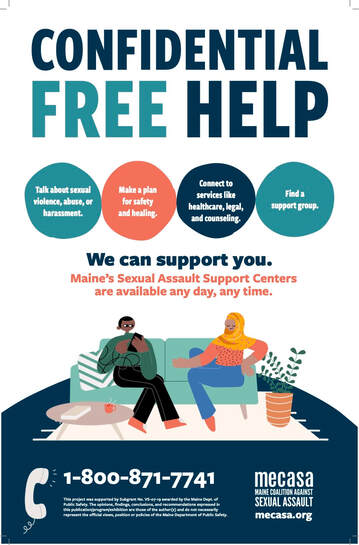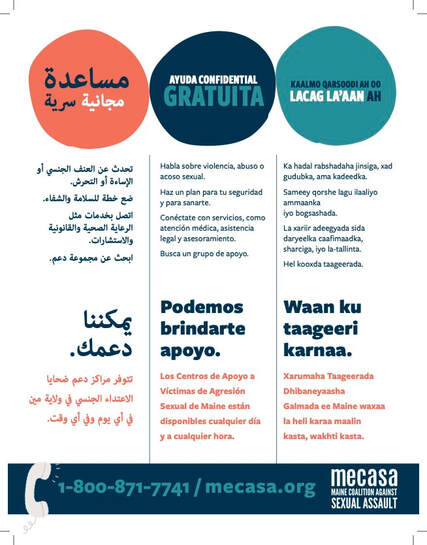Language Access
Meaningful language access is part of culturally affirming programs for all Mainers and survivors of sexual violence.
As part of our commitment to providing meaningful access, MECASA will develop and secure sustainable language resources as needed in both oral and written form so that no individual will be denied access to information or services.
As part of our commitment to providing meaningful access, MECASA will develop and secure sustainable language resources as needed in both oral and written form so that no individual will be denied access to information or services.




